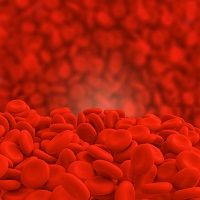Article
Promising New Therapy for Iron Deficiency Anemia in IBD Patients
Author(s):
Researchers have recently discovered the potential new use for ferric maltol as an oral treatment for iron deficiency anemia in patients with inflammatory bowel disease (IBD).

Researchers have recently discovered the potential new use for ferric maltol as an oral treatment for iron deficiency anemia in patients with inflammatory bowel disease (IBD).
The multicenter phase-3 clinical trial study published in the journal Inflammatory Bowel Diseases, led by Christoph Gasche, MD, from the Medical University of Vienna, was performed throughout various centers in the United Kingdom, Germany, Austria, and Hungary.
Gasche and his team observed a total of 128 patients: one group with both mild-to-moderate iron deficiency anemia and Crohn’s disease (CD) and the other with mild-to-moderate ulcerative colitis (UC), but all having had previously unsuccessful treatment with oral ferrous compounds. For 12-weeks after a screening period of 1-2 weeks, patients were given either placebo or oral ferric maltol — each a dose of 30 mg 2 times a day.
The study results indicated a significant increase in hemoglobin levels in the treatment group compared to the placebo group, with mean values of 1.04 g/dL at 4 weeks into treatment, 1.76 g/dL at 8 weeks, and 2.25 g/dL at 12 weeks. At the end of the treatment, two-thirds of the patients exhibited normal hemoglobin concentration compared to patients given the placebo (66% vs 13%, respectively). Ferric maltol did not have an effect on IBD severity and in terms of safety profile, it was comparable to placebo.
According to the researchers, “The favorable gastrointestinal tolerability with ferric maltol compared with currently available oral ferrous iron products, which is at least in part due to the lower doses of elemental iron allowed by this novel iron-maltol complex formulation, suggests that it may serve as an alternative to intravenous iron therapy in patients with IBD.”
In spite of these seemingly favorable results, Gasche believed it could be “too early for definitive conclusions,” and that “head-to-head trials will follow.”




